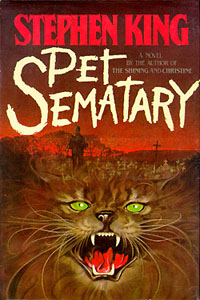

Mark Messier's nickname, "the Moose," is a tribute to his size, strength and determination. A player renowned for his leadership abilities and one of the all-time leading NHL scorers, Messier emerged from the great Edmonton Oilers teams of the 1980s to become a hockey superstar. He was a powerful skater who combined playmaking skill and a goal-scoring touch with the toughness necessary to survive and thrive in the corners. Six times his teams sipped from the Stanley Cup and on two occasions Messier took home the Hart Trophy as the league's most valuable player. Like Gordie Howe, Messier is credited with being the most complete player of his generation. He was a power forward, a two-way left winger and sometime center with talent and overwhelming power and size and an unpredictable mean streak. Messier acquired his multidimensional game during a childhood filled with hockey in his home town of Edmonton. At age four, he was attending his father's minor-league practices. At age 11, he was a stick boy for the Spruce Grove Mets in the Alberta junior leagues, the team he would star on just five years later. Messier was a big kid, just 16 and weighing close to 200 pounds and his talent was so obvious that he skipped major junior and college hockey altogether. The Indianapolis Racers of the World Hockey Association gave him a five game tryout when he was a 17 year-old in 1978. Though he failed to register a point and was released by the Racers just before the franchise folded, he did celebrate his 18th birthday in the pro ranks after the Cincinnati Stingers, a competing WHA team, signed him as a free agent and he played 47 games for that team. In 1979 he was selected by the Edmonton Oilers as the team's second choice, 48th overall in the NHL's Entry Draft.


Messier began the 1979-80 season with the Oilers, but the poise and professionalism that would one-day make him the game's premier leader, were still being developed by the NHL rookie. He scored 50 goals in 1981-82, his third season, double his total of the year before, and was selected to the NHL's First All-Star Team. When the Oilers won their first of four Stanley Cup championships in five years in 1984, Messier, on a team with such stars as Wayne Gretzky, Paul Coffey and Grant Fuhr, was the most valuable player in the playoffs, capturing the Conn Smythe Trophy for his 26 post-season points and his undeniable leadership. Gretzky was a dominant offensive player and Edmonton recorded new highs for team scoring. But the Oilers in their glory years were also a tight defensive group. Messier, fast, powerful and physical, was a perfect two-way player, able to excel at both ends of the ice. Gretzky and Messier were very close during their years in Edmonton. When Gretzky was traded to the Los Angeles Kings in 1988, Messier was made the Edmonton captain, though many predicted the Oilers' run of success would leave with the Great One. In the 1989 playoffs, the Oilers were upset by Gretzky's Kings in a close first-round series and the skepticism surrounding the team seemed to be merited. One season later, however, in 1989-90, Messier had a career year, finishing second to Gretzky in the points race with 129. He also won the Hart Trophy over Boston's Ray Bourque as the league's most valuable player. In the playoffs, with the Oilers down 2-1 in games to the Chicago Blackhawks in the semifinals, Messier took over in the fourth game, scoring two goals and collecting two assists in Edmonton's 4-2 road win. His one-man display impressed everyone who watched, Chicago players, coaches and fans included, and his all-time performance spurred the Oilers. Edmonton swept the remaining games from Chicago and easily handled Bourque and the Bruins in the finals to give Messier his fifth Stanley Cup ring with Edmonton.

The small market Oilers struggled following their 1990 victory, and Messier was traded to the New York Rangers prior to the 1991-92 season for Bernie Nichols, Steven Rice and Louie DeBrusk. Messier's offensive production had declined in 1993-94, though he scored more than 20 goals for the 14th time in his career. In the playoffs, however, Messier was at his very best, engineering one of the great moments in New York sports history. The Rangers were down 3-2 in games to New Jersey in the Eastern Conference finals. Messier publicly guaranteed a game six win. He followed up on his promise with a stellar performance, scoring a hat-trick in the third period to bring his team back from elimination and force a seventh game. Messier and the Rangers dispatched the Devils and then won the Cup in another thrilling series against Pavel Bure and the Vancouver Canucks. Messier scored the Cup winning goal in the seventh game. With the victory, the franchise's first in 54 years, Messier became the first player to captain two different teams to Stanley Cup titles. Along with his six Stanley Cups, Messier has also represented his country at three Canada Cup Tournaments (1984, 1987 and 1991, one World Championship (1989) and one World Cup (1996). Messier scored his 600th career goal in a win over Florida in October of 1998. He and two of his former Oilers teammates, Gretzky and Jari Kurri, were three of only ten players to ever top that benchmark. He returned to the Rangers in 2000, and during the 2003-04 season surpassed Gordie Howe as the second highest point getter in NHL history. Messier went on to finish the 2003-04 season with 43 points (18-25-43) and 1,887 for his career. Following a lock out year in 2004-05, Messier called it a career in the summer of 2005.







































































































































































